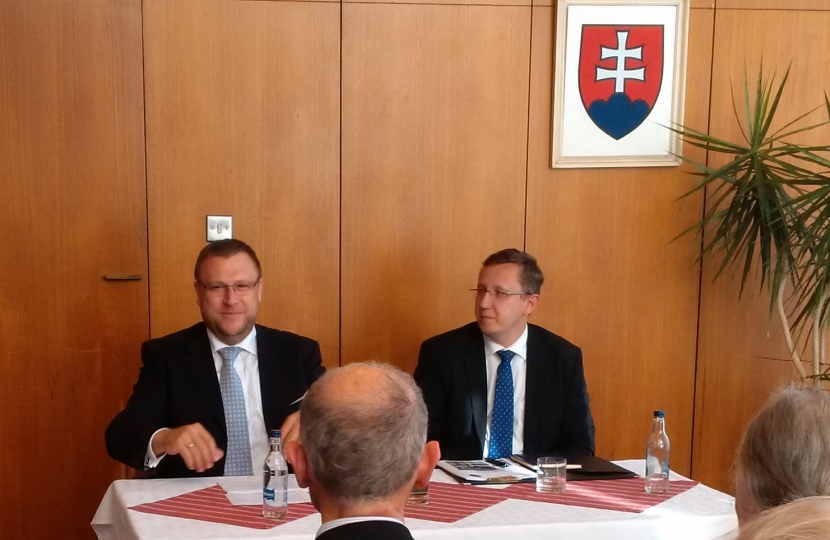
Slovakia Report 03 09 2015
Introduction and History
The Slovak Republic is an inland country with a territory of 18 933 sq. miles in the centre of Europe; its closest sea is the Adriatic Sea, 361 km away.
Slovakia is a parliamentary democracy and the head of state is a President with a five year term. The Constitution of the Slovak Republic dates back to 1992 and the Government is based in the capital, Bratislava.
From its Celt and Roman past to the present, this has been an evolving Slavic nation surrounded by its neighbours: the Czech Republic, Austria, Hungary, Poland and Ukraine. In 1993 Slovakia became an independent and sovereign state joining NATO and the EU in 2004 and the Eurozone n 2009.
The landscape is rich with extensive mountains, forests, deep valleys and gorges, meadows and pastures. There are extinct volcanoes, canyons, caves, grand rivers, waterfalls and mineral springs. Culturally, there are impressive castles and historic sites going back to the 9th century.
UK and Slovakia Trade
The UK is the 17th largest investor and exported £530 million to Slovakia in 2014. Bilateral trade was worth £2.89 billion.
UK’s top exports to Slovakia:
- petroleum oils and gases
- vehicles and car parts
- chemical materials and products
- medicaments
- articles for funfair, table games
Export Overview
Slovakia is one of 9 Central and East European (CEE) markets. It has enormous growth potential.
Contact a UKTI Slovakia export adviser for a free consultation if you’re interested in exporting to Slovakia. Link to the British Chamber of Commerce in Slovakia here.
Over 100 UK owned companies operate in Slovakia. Tesco is Slovakia’s top retailer and one of the main employers in the country. Other major UK investors include Shell, Provident Financial, CP Holdings, Amec, Tate and Lyle, BAE Systems, GlaxoSmithKline and Allen and Overy.
Slovak wine is produced in the southern part of Slovakia, which is divided into 6 wine-producing areas. Tokaj wine is popular and well known internationally.
Benefits for UK companies exporting to Slovakia include:
- English accepted as a business language
- gateway to emerging markets of eastern Europe
- one of a few countries in CEE to use the euro
- direct international air services
- English widely spoken
Strengths of the Slovak market include:
- stable economic and political environment
- strategic geographical position
- excellent telecommunications infrastructure
- highly skilled and flexible labour force
- high labour productivity with favourable labour costs
